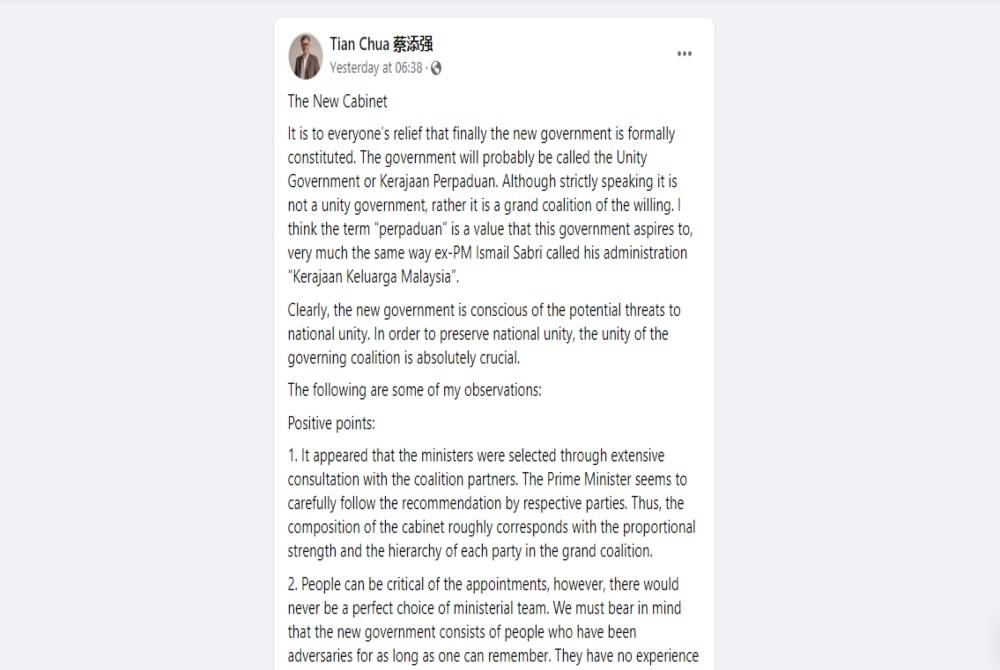Tian Chua lays down challenges for unity government
SYDI ALIF04 Dec 2022 10:54am

Screenshot of Tian Chua's post - Tian Chua's Facebook
A
A
A
He pointed out the need for new Cabinet ministers to quickly shorten their learning curve to outperform their predecessors who “were in contrast much more senior and experienced”, although seniority was not a guarantee of competence."
He added the biggest challenges for the new government was national unity, economic development and equitable distribution.
In order to ace these, he insisted that all parties must put aside prejudices and work as a team.
“If each party is thinking about pleasing their own respective constituencies, the coalition will break down shortly.
"Therefore, all coalition parties must focus on the common agenda rather than communal or sectarian demands,” he said in his Facebook post.
In addition to that, the former Batu MP also pointed the new Cabinet is not a unity government, but rather a grand coalition of the willing, stating the "unity" is what the present government aspires to be achieve.
On the appointment of Cabinet members, he said there would never be a perfect choice of ministerial team as some of them do not have experience.
“They have no experience working together let alone sharing power. This is a new platform for working together,” he added.
Speaking further on the “new platform”, he figured that the prominent positions given to BN and GPS will help to pacify internal anti-PH sentiments and minimise squabbles.
Two deputy prime minister's - Datuk Seri Ahmad Zahid Hamidi from Barisan Nasional and Fadillah Yusof from Sarawak's GPS could provide the much needed stability, he added.
On the other hand, he noted “some rather glaring weaknesses in the new line-up” as the Cabinet’s composition had erroneously neglected the equitable ratio of women’s representation while they strengthened inter-party cooperation.
“It was a pledge by all parties to achieve a minimum 30% women participation in the decision making body. Certainly this is not the responsibility of the prime minister alone, all parties must address this issue seriously,” he said.
Besides that, he also pointed his observation of some ethnic minorities and territorial regions being inadequately represented in the Cabinet.
“We recognised that certain communities or states were omitted or under-represented because the nomination process from the parties tends to be biased in favour of national leaders. This must be rectified in the future,” he expressed his concern.














